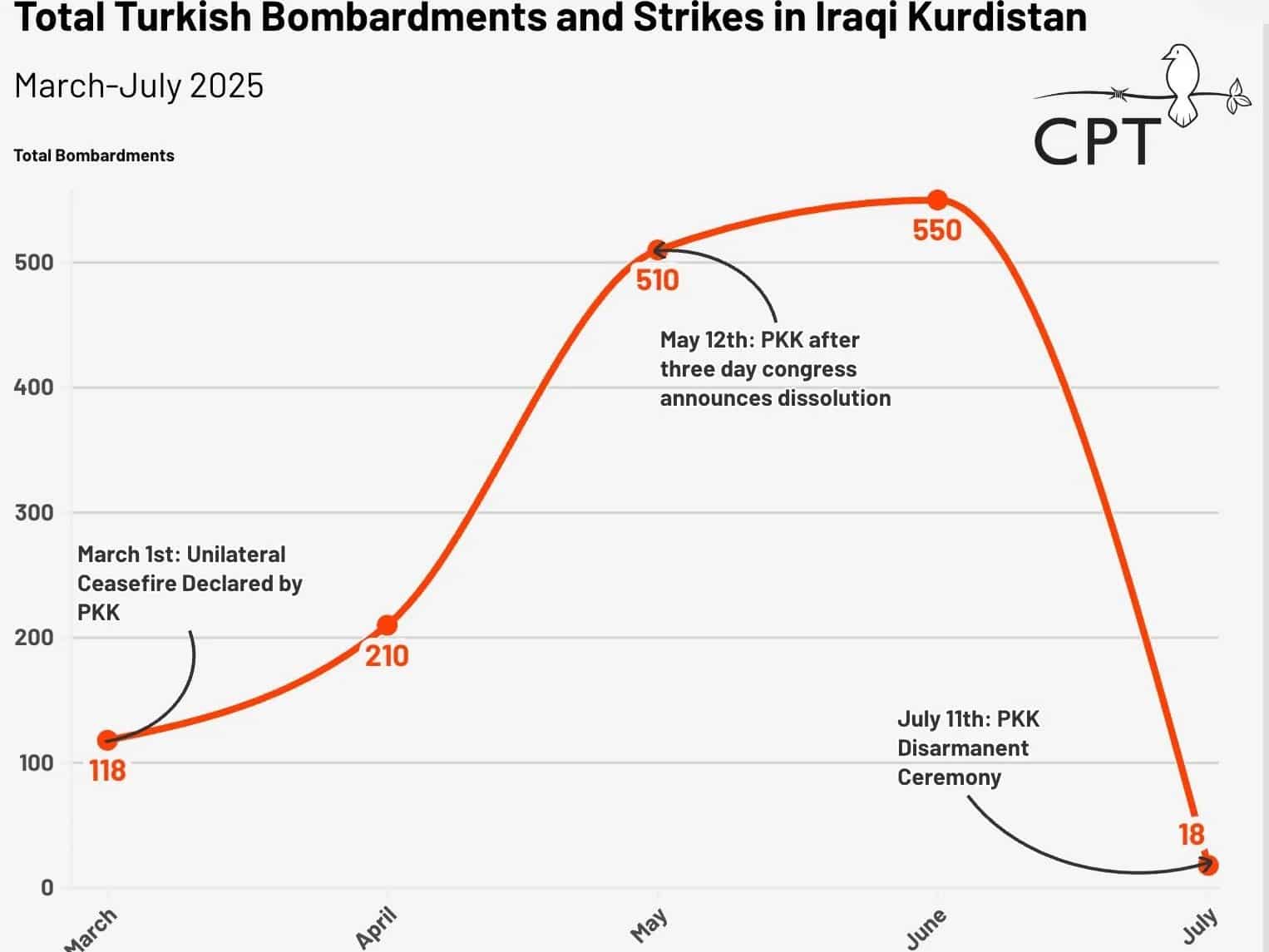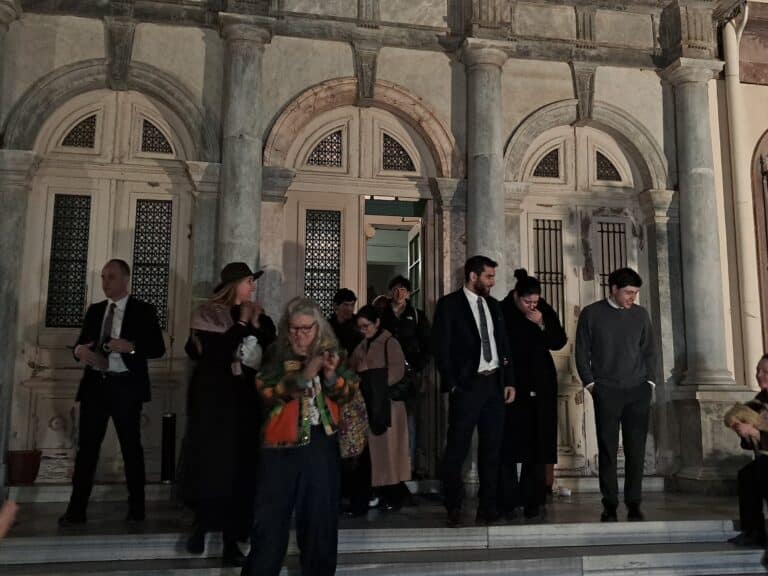On 11 July, the Kurdistan Workers’ Party (PKK) held a symbolic ceremony marking the start of its disarmament process, with several members publicly burning their weapons, more than four months after announcing their intention to disband. This decision followed a peace appeal issued by imprisoned PKK leader Abdullah Öcalan in late February, which was subsequently followed by a unilateral ceasefire declared in March.
With the initiation of disarmament and ongoing peace negotiations and implementation efforts, Turkish military strikes decreased sharply – by 97% compared to the previous month – representing a significant shift and the first such reduction in a long time. However, despite this decline, Turkish forces launched a new ground operation on 29 July and continued military activities that obstructed civilian movement and caused damage to agricultural lands.
Between 1 July and 31 July, at least 18 bombardments and airstrikes were documented in Iraqi Kurdistan, marking a sharp decrease compared to previous months. Most incidents occurred in Duhok Governorate, specifically within the Amedi district. This total includes 17 artillery shellings, all concentrated in Amedi, and one drone strike reported in Penjwen, Sulaymaniyah Governorate, the first recorded drone incident since the ceasefire announcement.
On 19 July, an alleged Iranian suicide drone targeted a Toyota Hilux in Shiwa Gwezan, located in the Germik subdistrict of Penjwen, Slemani Governorate. The strike reportedly killed one Kurdistan Free Life Party (PJAK) member and injured another. Following the attack, YRK (Eastern Kurdistan Units) – the military wing of PJAK – claimed the vehicle was hit by an Iranian suicide drone. Eyewitnesses interviewed by CPT described the vehicle as a Toyota Hilux carrying two armed individuals and all confirming that a drone struck the vehicle, lingered over the area briefly, and then departed. Moreover, local security forces in Penjwen reported no recovery of drone debris, casting doubt on the claim of a suicide drone.
Additionally, there have been no recorded instances of drone use by Iran in the border areas of the Slemani Governorate; only artillery shellings have been documented. Thus, it is highly likely that it was a Turkish drone. The strike also ignited fires in surrounding agricultural lands, which took local civilians approximately five hours to extinguish.
On 22 July residents from the village of Dargale Musa Bage, located in the Kani Mase subdistrict of Amedi, of the Duhok Governorate, attempted to return to their homes and farmland after displacement since June the previous year. However, Turkish soldiers stationed in the area denied them entry. According to local reports, soldiers set fires around the village perimeters, which quickly spread to the villages of Dargale Musa Bage, Miska, Bave, Shilaza, Blizane, and Qasrok. The resulting fires caused extensive damage and required nearly two days for local residents to extinguish.
On 29 July, Turkey launched a ground operation in Batifa district belonging to the Zakho administration of the Duhok governorate involving approximately 250 soldiers. The operation targeted the villages of Shilin, Shilane, Banke, Lehvane, Avlahe, and Pirbila. On Siara Sttawre Mountain, Turkish forces established a new military base. Residents were ordered to remain indoors, and access to these villages was prohibited. Turkish forces conducted search operations in the area with the objective of rescuing two operatives from Turkey’s National Intelligence Organization (MIT), reportedly held captive by the PKK. One of the operatives was recovered alive, while the other was found deceased. Despite the operation, Turkish forces have not withdrawn from the new base and continue their presence in the area.
Since the beginning of the year, there have been 1,696 recorded military strikes and attacks by the Turkish Armed Forces inside Iraqi Kurdistan. These incidents consisted of 1,249 artillery shellings, 398 airstrikes by fighter jets and drones, 43 helicopter attacks, 5 incidents of small arms fire, and 1 incident involving explosive ordnance. Furthermore, 1,501 attacks and strikes were recorded in Duhok governorate, 140 in Erbil governorate, 55 in Sulaymaniyah governorate, and none in Nineveh governorate. Additionally, there have been nine civilian casualties, with three killed and six injured.
Overall, the data indicates that elements of the peace process in July have contributed to a significant reduction in bombardments and strikes. However, Turkish military forces have not withdrawn from contested areas; instead, they continue to establish new military bases, restrict civilians from returning to their displaced lands, and negatively impact civilian livelihoods.




